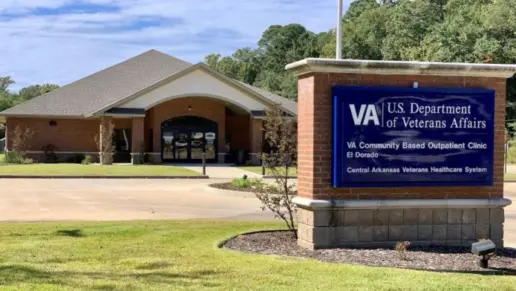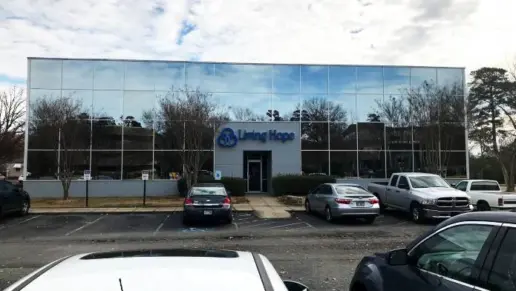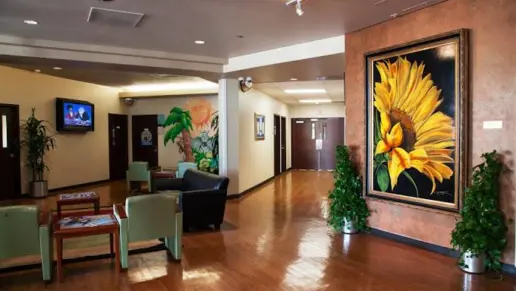About Retreat at Sky Ridge
Located in Eureka Springs, Arizona, Retreat at Sky Ridge is an alcohol and drug rehab center that provides addiction treatment to men and women. They provide detox, residential treatment, and after care treatment.
Retreat at Sky Lodge is a non-12 Step smart recovery oriented addiction treatment center. Services include:
Detox
This is a medically monitored detox overseen by medical professionals. The average length of stay is 5 to 7 Days in length. Clients are given medications to help reduce discomfort and help them safely and effectively remove addictive substances from their body.
Residential
This is a person-centered, highly structured program. The minimum stay is 30 days. A physical, emotional, and psychological evaluation begins the treatment process. each person will then be given a personalized treatment plan. Clients will receive treatment that is holistic and based in science. Trauma therapy and dual diagnosis treatment is also available. Individual therapy, group therapy and family therapy is offered, along with smart recovery meetings.
Aftercare
This program assists clients in transitioning from inpatient to outpatient and long-term care. If local, clients may continue to meet at the center on a weekly basis. Referrals are made to outside resources in each person’s area to help them continue treatment.
Rehab Score
Gallery
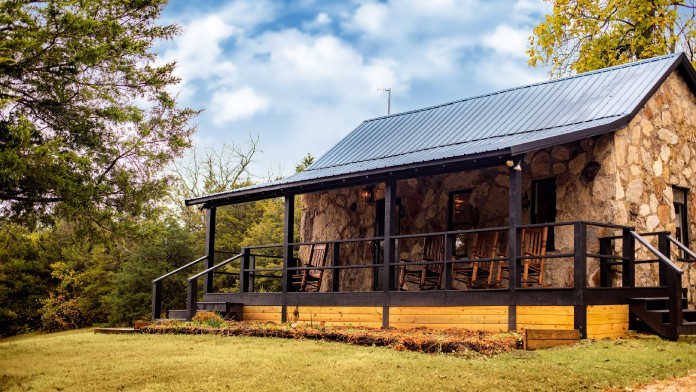
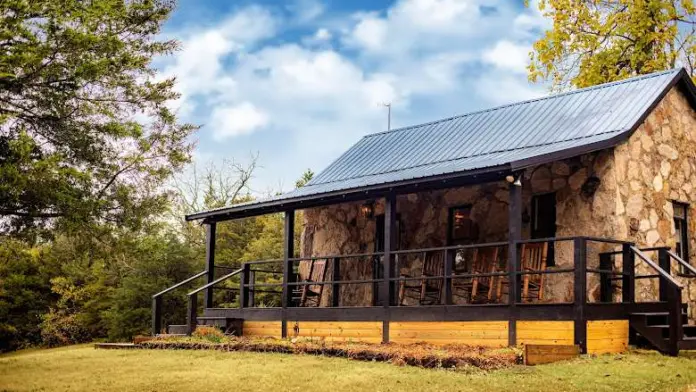
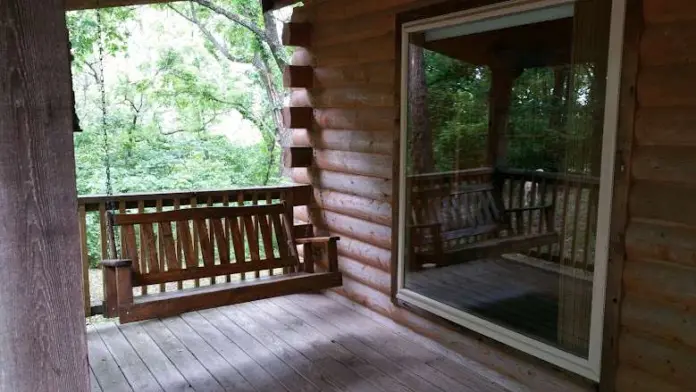
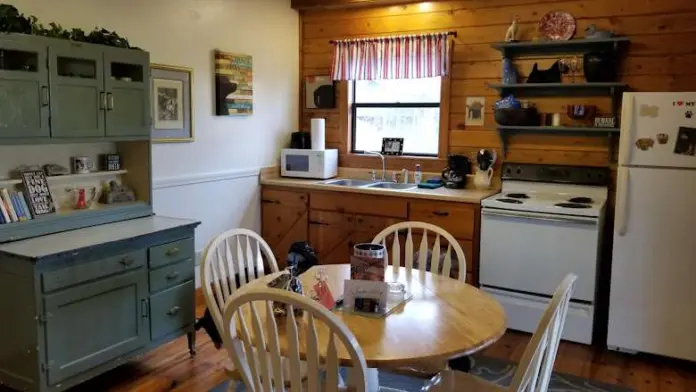
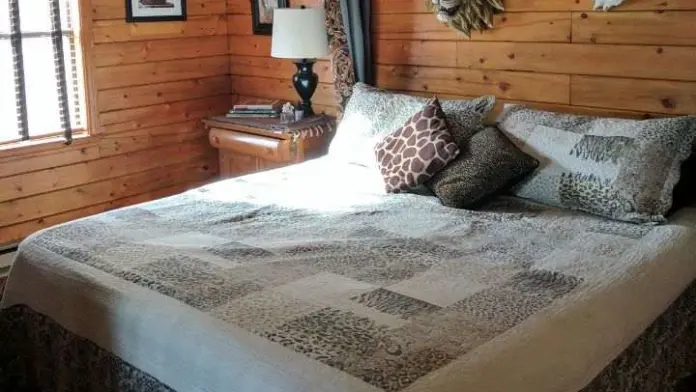
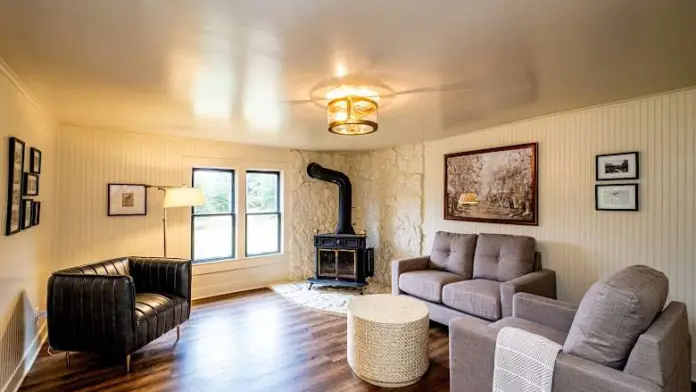
Location
Other Forms of Payment
Private insurance refers to any kind of healthcare coverage that isn't from the state or federal government. This includes individual and family plans offered by an employer or purchased from the Insurance Marketplace. Every plan will have different requirements and out of pocket costs so be sure to get the full details before you start treatment.
Self-pay involves paying for treatment out of your own pocket. You can use savings or credit, get a personal loan, or receive help from family and friends to fund your treatment. If you don't have insurance or your insurance plan doesn't cover a specific program, self-pay can help ensure you still get the care you need.
Addiction Treatments
Levels of Care
Programs


Clinical Services
One of the most common types of psychotherapy, cognitive behavioral therapy in Arkansas is an effective tool for the treatment of substance use disorder. It is a common therapeutic method that is used to treat a variety of mental and behavioral health challenges.
Developed in the 1970s, dialectical behavior therapy (DBT) is a type of psychotherapy based in cognitive behavior therapy. DBT is designed specifically to help people who experience emotions intensely. It is used to treat substance use disorder, anxiety, and depression, among other mental health disorders.
Group therapy offers men and women the opportunity to learn essential coping skills from their peers who have practiced these skills in the community. You learn new communication techniques and relapse prevention strategies that promote sobriety and sustainable recovery.
Individual therapy gives men and women in Arkansas the chance to engage in one on one therapy sessions that focus on identifying personal triggers and high risk situations for drug and alcohol addiction. Your therapist works together with you to develop coping strategies and build resilience that promotes sustainable recovery.
Motivational interviewing is a conversational approach to treatment. It helps you express your desire for change, reflect on any ambivalence you're feeling about change, and plan for the next steps to make the changes you desire.
The goal of trauma therapy is to address the lingering mental, emotional, and physical lingering effects of a traumatic event. Your therapist helps you process this trauma and build resilience to face future challenges.
If you participate in couples therapy, your therapist may use one or more methods to help you improve communication and resolve conflict. These techniques can include emotionally focused therapy, psychodynamic couple's therapy, and cognitive behavioral therapy.
Families in Arkansas use family therapy to enhance communication and understand the effect that addiction has on family members. The goal is to help members identify and modify negative behaviors and create a more cohesive and supportive environment that is conducive to recovery.
Drug rehab treatment in Arkansas may include experiential therapy methods. These expressive activities, such as music, art, or drama, allow you to recreate situations and work through emotions that are affecting your thoughts and behaviors. The goal is to identify and let go of negative emotions and create positive change.
Amenities
-
Private Transportation
-
Wifi
-
Residential Setting
-
Private Rooms
-
Gardens
Accreditations

The Commission on Accreditation of Rehabilitation Facilities (CARF) is a non-profit organization that specifically accredits rehab organizations. Founded in 1966, CARF's, mission is to help service providers like rehab facilities maintain high standards of care.
CARF Accreditation: Yes
Contact Information
637 Co Rd 111
Eureka Springs, AR 72631
